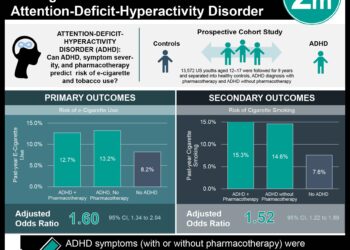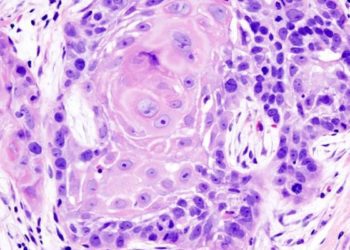Pediatric providers who completed tobacco education program more likely to educate parental smokers about quitting
Jan 19th – Pediatric providers were highly satisfied with the education program.
[tabs tab1=”2MM Rundown” tab2= “2MM Full Report” tab3=”About the Authors”]
[tab]
1. Online tobacco education programs motivated pediatric providers to initiate smoking cessation interventions for parental smokers.
2. Pediatric providers were highly satisfied with the education program.
An online smoking education program for pediatric providers increased the likelihood of providers initiating smoking cessation interventions for parental smokers. Further, providers were highly satisfied with the program and reported increased self-efficacy in carrying out cessation interventions. One major study limitation was the inability to capture whether success (parental smoking cessation) occurred as a result of the interventions, as the study only measured provider-oriented outcomes. Further research is needed to determine the program’s effectiveness on parental smokers’ cessation behaviors.
Notwithstanding, the providers’ positive reception to this online program could represent progress towards cost-effective, web-based provider education that transcends smoking cessation. Future research could assess the application of this model to other provider-initiated lifestyle interventions for a range of providers, which could help combat other common and costly health problems such as obesity and diabetes.
Click to read the study in Pediatrics
[/tab]
[tab]
1. Online tobacco education programs motivated pediatric providers to initiate smoking cessation interventions for parental smokers.
2. Pediatric providers were highly satisfied with the education program.
Primer: An estimated 19.3% of American adults (45.3 million) smoke cigarettes, which leads to 443,000 preventable deaths per year (1). While the ill effects of smoking on smokers’ health have been widely reported since the 1950s (2), the effects of secondhand smoke were less clear until recently. A 2006 report from the United States Surgeon General concluded that secondhand smoke causes significant disease and death in non-smokers (3). Children are particularly susceptible to secondhand smoke, and those exposed suffer disproportionately from lower respiratory infections (4).
Public health efforts to curb adult smoking include policy-level interventions such as tobacco taxes, tobacco advertisement regulations, and bans on smoking in public spaces, as well as educational campaigns such as warnings on cigarette boxes and workplace cessation programs (5, 6). Another intervention targets parental smokers whose children are hospitalized with respiratory illnesses, as parental smoking likely contributed to the child’s illness and thus might motivate the parent to quit (7). However, smoking is a difficult topic to discuss, as the choice to quit involves putting personal health and concern for others’ health above the improved quality of life many gain from smoking, such that providers without proper education can be reluctant to engage parents in cessation discussions (8).
The present study examines the effectiveness of WeBREATHe, an online tobacco education program designed to help pediatric providers educate their patients’ parents about smoking.
Background reading:
- CDC – Adult cigarette smoking in the United States: current estimate
- Cancer and tobacco smoking: a preliminary report
- The health consequences of involuntary exposure to tobacco smoke: a report of the Surgeon General
- Worldwide burden of disease from exposure to second-hand smoke: a retrospective analysis of data from 192 countries
- WHO – Tobacco fact sheet
- CDC – Tobacco-use cessation
- Child hospitalization: an opportunity for parental smoking intervention
- Smoking cessation counseling for parents during child hospitalization: a national survey of pediatric nurses
This [randomized] study assigned 215 pediatric respiratory therapists and nurses to complete the tobacco education program either immediately (intervention group; 108 providers) or when the study ended (control group; 107 providers). Outcomes included self-reported measures of tobacco cessation-related behaviors and self-efficacy and provider satisfaction with the program.
Compared to control group providers, intervention group providers were more likely to initiate smoking cessation interventions and express greater self-efficacy in their ability to provide interventions [F(1, 213) = 32.03 and 43.89 for cessation interventions and self-efficacy, respectively; p<0.001 for both] at the three-month assessment. The intervention group also rated the program highly (mean ratings of 4 or above on a 5-point Likert scale).
In sum: An online smoking education program for pediatric providers increased the likelihood of providers initiating smoking cessation interventions for parental smokers. Further, providers were highly satisfied with the program and reported increased self-efficacy in carrying out cessation interventions. One major study limitation was the inability to capture whether success (parental smoking cessation) occurred as a result of the interventions, as the study only measured provider-oriented outcomes. Further research is needed to determine the program’s effectiveness on parental smokers’ cessation behaviors.
Notwithstanding, the providers’ positive reception to this online program could represent progress towards cost-effective, web-based provider education that transcends smoking cessation. Future research could assess the application of this model to other provider-initiated lifestyle interventions for a range of providers, which could help combat other common and costly health problems such as obesity and diabetes.
Click to read the study in Pediatrics
By [CH] and [LH]
More from this author: Minority of American children meet pediatric guidelines for both physical activity and screen-time viewing, Regional increases in unemployment in infancy associated with development of behavioral problems in American adolescents, Intensive lifestyle intervention in overweight adults associated with higher remission rates of Type 2 Diabetes
© 2013 2minutemedicine.com. All rights reserved. No works may be reproduced without written consent from 2minutemedicine.com. Disclaimer: We present factual information directly from peer reviewed medical journals. No post should be construed as medical advice and is not intended as such by the authors or by 2minutemedicine.com. PLEASE SEE A HEALTHCARE PROVIDER IN YOUR AREA IF YOU SEEK MEDICAL ADVICE OF ANY SORT. Content is produced in accordance with fair use copyrights solely and strictly for the purpose of teaching, news and criticism. No benefit, monetary or otherwise, is realized by any participants or the owner of this domain.
[/tab]
[tab]
 Caroline Huang: Caroline is a 3rd year Ph.D. candidate in Public Health at the University of Oxford’s Ethox Centre, where she is a Rhodes Scholar.
Caroline Huang: Caroline is a 3rd year Ph.D. candidate in Public Health at the University of Oxford’s Ethox Centre, where she is a Rhodes Scholar.

Leah Hawkins: Leah is a 5th year M.D./MPH candidate at Harvard Medical School.
[/tab]
[/tabs]



